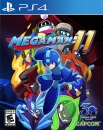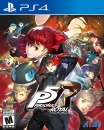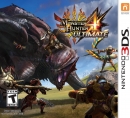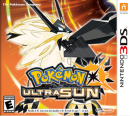A world-exclusive look inside Hollow Knight: Silksong, @TeamCherryGames' sharply refined sequel to a modern classic. E354 is on sale now – you can buy a digital copy of the magazine via the App Store to read it instantly. https://t.co/vHsFKzan1A pic.twitter.com/PTSoOKoqun
— Edge (@edgeonline) December 31, 2020
So SilkSong will be exclusive to the Switch and PC at launch, TeamCherry will self publish this title and it's already being localized in English, French, Japanese, Russian, German & Italian.
It also follows the success of Hades, Among Us and Sakuna in the past 6 months and the overall boon for some indie developers on the system.
This is why I wanted to revisit some comments from Nintendo's strategy in 2017, and examine why they've been able to make such a turn around in terms of building relationships with game makers since 2016, below is a great article from GameInformer in late 2017:
Falling Behind
The Wii U was notorious for its lack of third-party titles. Near the end of its lifecycle, players were provided with a barren wasteland, where months passed between major new releases. Due to poor sales, a difficult-to-develop-for infrastructure, and a form factor many viewed as a half-measure, the Wii U was not viewed as a destination platform by triple-A publishers or independent developers.
Making The Switch
Baker openly admits the Switch being a shiny, new platform is a good way to attract developers, he claims the way the team operates now isn’t too different from how it did near the Wii U’s final days. Late in the Wii U cycle, we saw some new approaches to court more third parties
While Refenes(Super Meat Boy) implies that Nintendo is eclipsing Microsoft in terms of developer-friendly framework, he also asserts that Nintendo is overtaking Sony in a completely different area of supporting its indie developers: promotion.
Spreading The Word
Many other developers who are releasing games on Switch shared the notion that Nintendo is going above and beyond from a promotional standpoint. “Over the past two years, I’ve seen how much Nintendo has been putting into getting the word out about indies and trying to help the indie community get more popular and get more support,” says Goichi Suda, CEO of Grasshopper Manufacture and director of Travis Strikes Again: No More Heroes. “It’s really obvious to me that Nintendo has really started caring more about indies.”
Tuovinen agrees Nintendo’s approach to promoting indies is special. “The support from Nintendo for different events and promotions is overwhelming,” he says. “We really couldn’t be happier with how things are.”
Baker understands that Nintendo’s hardcore fan base outshines any promotional help his team can give or unique traits the Switch may possess. “As much marketing or PR support that any of us can possibly give to any particular game or any particular franchise, the strongest message out there is the word-of-mouth messaging,” he says. “That’s more powerful than anything we could do.”
Keeping Things Personal
Another key factor that was brought up repeatedly by various indie developers is how Nintendo delivers a more personal touch in its approach.
Suda says he feels that the team at Nintendo has shown that they really care about the No More Heroes series. He says that it culminated with an invitation to be included in the full reveal of the Switch system in January. “In my entire career as a video game creator, I’ve never had that chance before,” Suda says. “I’ve never had a platform or company really show that they care about my games or my series this much, and really offer this much support for it. I really appreciate that and it’s one of the reasons I’m really glad to be working with Nintendo. They show that they do care. That sort of care is something that I’m able to receive from Nintendo that I don’t really think I’d get from anywhere else.”
Part of establishing a long-standing relationship with independent developers is understanding what best serves the developer. Baker says that while Nintendo loves having third-party games from indies arrive exclusively on Switch, his team doesn’t force developers to go that route unless it makes sense for them. That holds true, as many of the developers featured in Nintendo’s indie lineup are also releasing on other platforms. “We know that every one of these independent developers needs to make business decisions that are right for them,” he says.
Going Worldwide
Nintendo hopes to further its attempts to make this initiative more globally focused by removing barriers for developers to get their games in additional regions. Previously, developers often needed an existing entity in Japan to release a game in the Japanese market, but through this new global approach, games like Shovel Knight, which are a good fit for the Japanese market, have been able to release on Nintendo platforms.
Last edited by noshten - on 31 December 2020






























